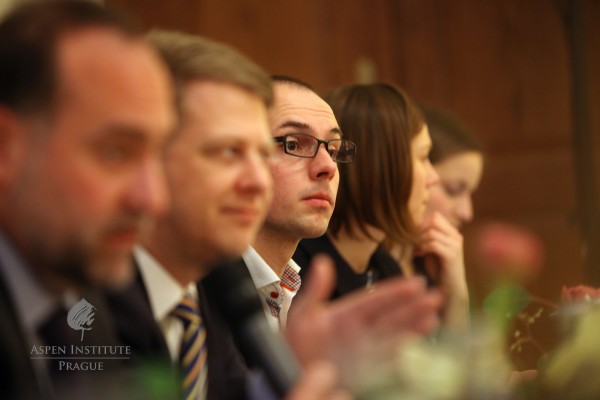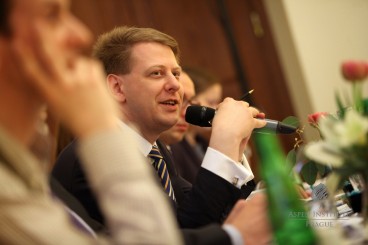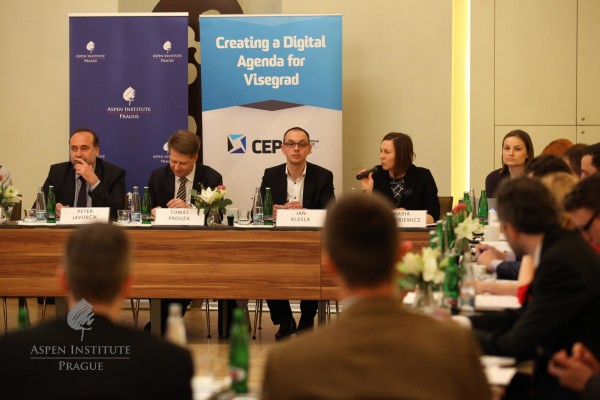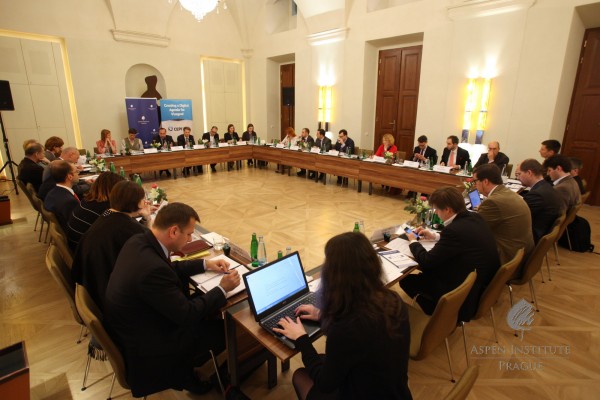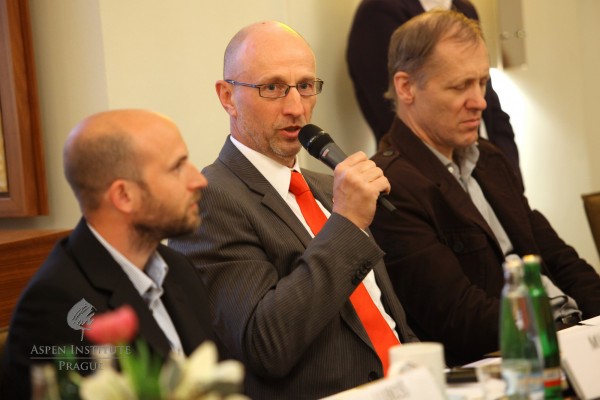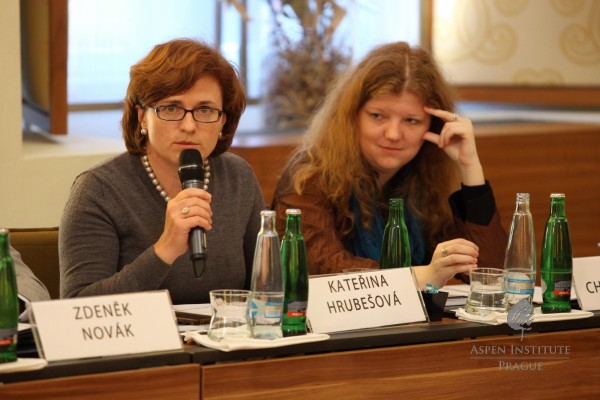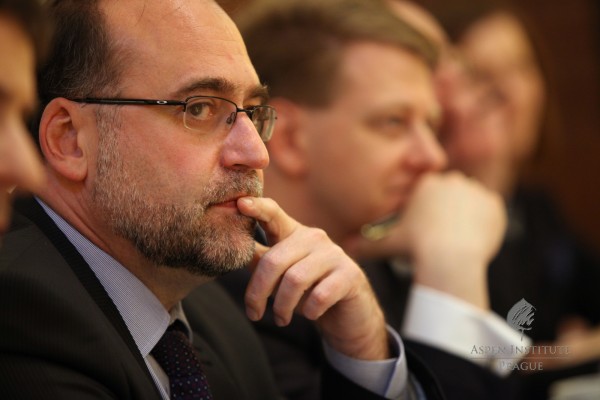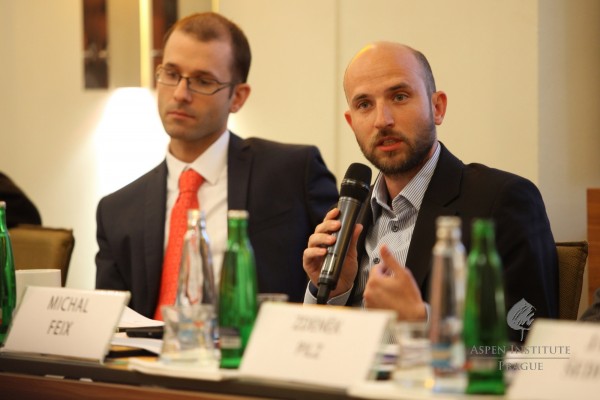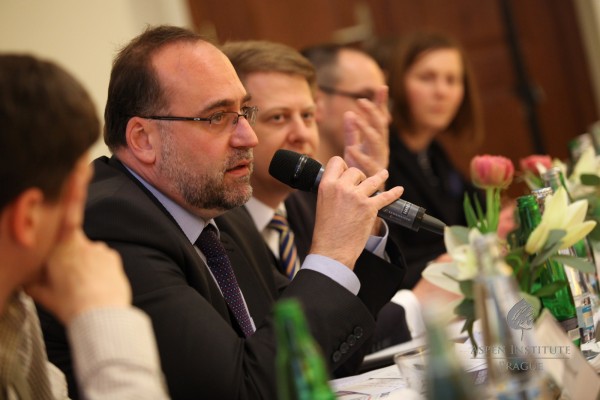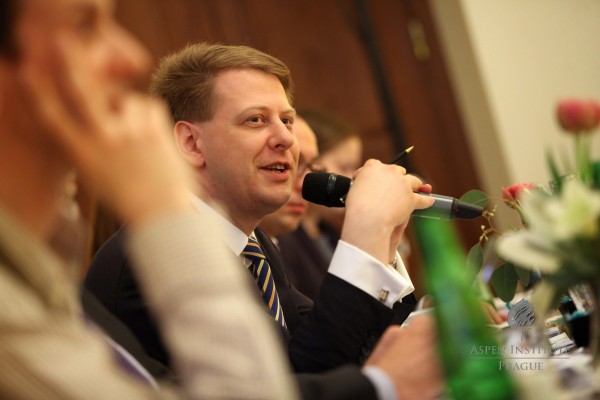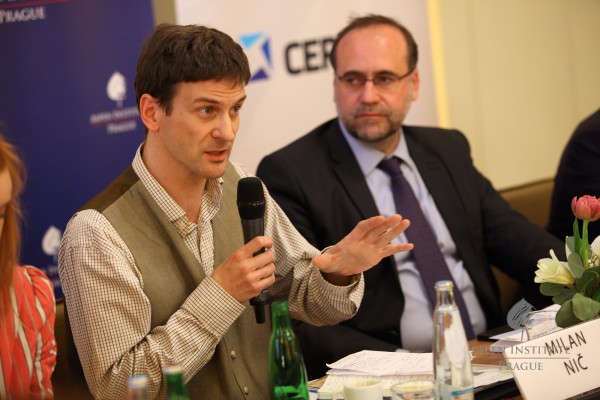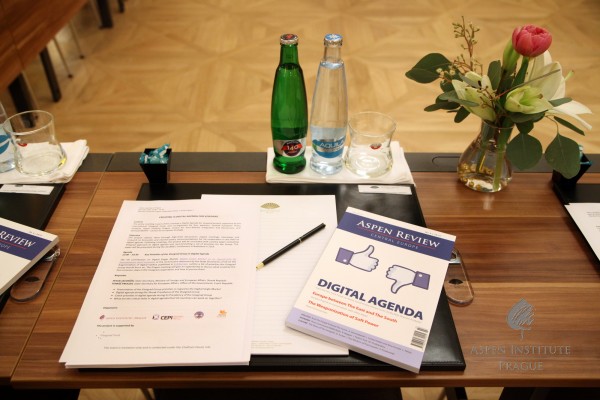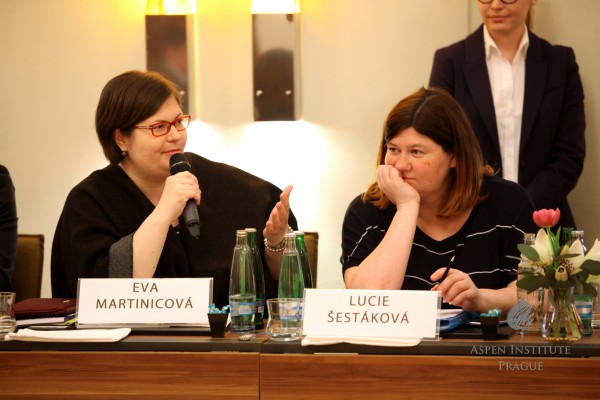On April 28, 2015 the Aspen Institute Prague, in cooperation with the Central European Policy Institute, organized a policy meeting, which was a part of the Creating Digital Agenda for Visegrad, supported by the International Visegrad Fund. The meeting brought together Czech and Slovak State Secretaries for European Affairs and representatives of business, public administration, and an expert community. It served as an opportunity to discuss the Visegrad Group’s key priorities in their digital agenda and how to best pursue them.
To reflect the growing importance of the Internet economy (3-12% of GDP across the Visegrad countries) and the complex character of the digital agenda (pertaining to education, security, industry 4.0 or digitization of traditional industries, IT law) the Slovak Presidency of the Visegrad Group (V4) made it one of its core priorities in 2014/ 2015. During the meeting, Peter Javorčík, the Slovak State Secretary for European Affairs summarized the joint activities in the digital area undertaken by the V4 recently, mentioning amongst others:
- The common presentation of V4 startups (in the Netherlands or Silicon Valley in the US), which helps show the region’s economic and human potential.
- The V4 non-paper The V4 Contribution On Digital Single Market. Digital single market as an opportunity for entrepreneurs and consumers, which demonstrates common interest of the V4 and its willingness to act jointly at the EU level.
- The cooperation of V4 on the digital agenda makes sense not only for political reasons but also because there are many similarities among V4 countries as proven e.g. by the recent Digital Economy and Society Index.
In reply to his counterpart, Tomáš Prouza, the Czech State Secretary for European Affairs, emphasized that digital agenda will continue to be a key Visegrad priority during the Czech Presidency of the Group. As a major challenge, he mentioned the need to change the perception on part of the administration and business to digital thinking, and applying the rule “digital by default” automatically, whenever possible. He reiterated the value of the V4 joint position, adding that the region can do more together (experience sharing, common business presentation) than simply reacting to external initiatives such as the Digital Single Market.
In the following debate with representatives of businesses and ministries as well as the expert community, several points were recurring as crucial not only for the Visegrad Group:
- Improving cross-border e-commerce environment and simplifying the conditions for establishing new businesses and on-line buying in other member states; this area is closely related to data protection and consumer rights, which belong to the portfolio of Commissioner Věra Jourová.
- Digital literacy and e-skills trainings have to encompass all age groups, including the growing number of elderly people, and has to be enhanced by changing work/ education habits and regulations (distance learning/ working, programming classes etc.). Simply buying hardware is not sufficient (e.g. tablets to schools).
- Internet governance needs to protect privacy and provide security of operations but it must not stifle business; the private sector has to communicate its concerns to regulators. Business representatives present at the meeting agreed that it is crucial for the authorities not to defer in making decisions quickly so as not to prolong the legal vacuum, because this can be more damaging to companies and entrepreneurs than a wrong decision, which could be quickly remedied by practice.
- Industry 4.0 or the digitization of traditional industries: companies should not understand it as merely modernization of current processes and building infrastructure (which of course is its prerequisite) but should embrace the possibilities of the Internet of Things, the Internet of Services and cyber-physical systems as sources of new business opportunities; moreover there are still areas little affected by the digital turn, such as health.
The project Creating Digital Agenda for Visegrad will conclude with a policy paper presented at the GLOBSEC Conference in Bratislava in June 2015.

